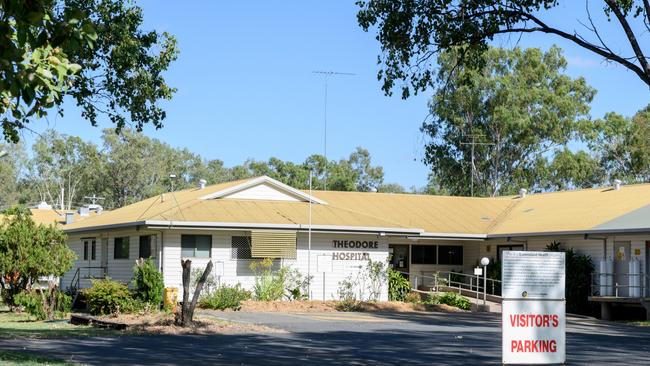AMAQ reveals doctors fears on rural obstetric services
The State Government’s initiative to centralise maternity services and shut units in rural and regional areas has been labelled “extremely dangerous” by almost half of Queensland’s doctors, while one quarter say it has been “catastrophic”.
QLD News
Don't miss out on the headlines from QLD News. Followed categories will be added to My News.
The State Government’s initiative to centralise maternity services and shut units in rural and regional areas has been labelled “extremely dangerous” by almost half of Queensland’s doctors and one quarter say the decision was “catastrophic”.
The Australian Medical Association of Queensland has exclusively revealed to The Sunday Mail what 677 doctors, 300 of them from Bush areas, really think about the downgrading of obstetric services which often leaves areas without anaesthetists and other specialists.
Bush maternity crisis: Draft taskforce report reveals risk to rural families
Central Queensland mum tells how bush baby crisis nearly killed her daughter
Bush baby crisis proof of the need for a free press
Maternity planning program aims to address bush baby crisis gripping Queensland regions
The Sunday Mail identified a problem with the closure of 40 birthing units over decades when it launched the long-running Bush Baby Crisis campaign. The newspaper revealed that babies were dying at a higher rate in these areas and women were birthing in the dirt at the side of the road as many were forced to travel many hundreds of kilometres to a delivery suite.
The shock exposure of the problem sparked far reaching reforms and the Health Minister Steven Miles reopened some units and ordered health bosses to work out how to reopen more.
The new research from an AMAQ survey highlights 25 per cent of the doctors have felt the reduction of maternity services in rural and regional areas was ‘catastrophic’ with a further 42 per cent saying it was ‘extremely dangerous’ and had a damaging flow-on effect.

AMAQ’s spokesman Dr Marco Giuseppin said the State Government’s solution for
rural and regional maternity care left many women without the option of having a doctor
involved during their pregnancy or childbirth.
“They have to travel away from their home town if they need or want the services of a
doctor. Once obstetricians leave rural and regional areas, there’s a domino effect of hospital
theatres shutting because of the drop in births and then anaesthetists and other specialists
leave town because they don’t have the resources needed to do their jobs,” he said.
“It makes it necessary for everyone – not just expectant mothers – to travel elsewhere to
receive healthcare that they once would have received in their home town. We know Rural Generalists have incredibly broad skills and can deal with anything from a
farm accident to antenatal care, but there’s not much they can do without the right medical
equipment and specialist support on hand,” he said.
The doctors’ main concern was public health care role substitution – the practice of other health practitioners providing care normally done by doctors.
“Midwives do an outstanding job right across Queensland, but they are not doctors and vice versa,” said Dr Giuseppin, a rural generalist who works across south western Queensland.
“Each practitioner brings a unique set of skills to the task. Midwives have confided to me that they feel nervous and unsupported about having sole responsibility for the birth of a baby without the back-up of a doctor nearby, but the current maternity care policy means they are often required to work without that backup in rural areas,” he said.

